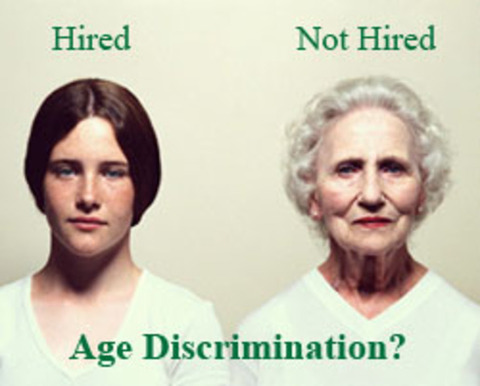Website Design and Internet Marketing
Website Design and Internet MarketingWebsite Design and Internet Marketing
Website Design and Internet MarketingTop Wrongful Termination Attorney
Do you believe you had been wrongfully terminated from the job? Our lawyers understand that getting fired from a job is among the most stressful and difficult encounters someone could endure. In case you've been fired, there are lots of components to consider when assessing whether the termination happened for prohibited reasons. For more information or to learn more about the particulars of your claim, contact our top wrongful termination attorney today and establish a totally free consultation.
What’s “at-will" job?
Generally talking, California workers are assumed to be utilized “at-will." This merely means that a worker doesn't have a contract for a predetermined length of time plus also an employer has a right to terminate employment for any reason or no reason, with or without notice. Cal. Even though it might look as if your employer has absolute liberty to fire you, this is false.
What's Wrongful Termination?
Unfair treatment at work isn't necessarily prohibited and an employer might be able to discharge a worker for many legal factors. But, although many workers are “at-will", there are reasons that an employee might not be fired. An employee Might Not Be terminated for the following reasons:
- Exercising an Ideal like filing a workers compensation claim, taking family leave, with sick time, or taking breaks
- Reporting a breach like a health or safety concern
- Performing a compulsory obligation, for example, working on jury duty or at the army
- Whistleblowing or refusing to participate in an illegal action
Discrimination according to an employee's protected status, such as race, sex, religion, age, handicap, sexual orientation, or perhaps political affiliation, What's more, some companies will use probationer intervals for new workers to prevent possible liability for a wrongful dismissal. Therefore, workers who believe their employer terminated them must identify circumstantial evidence demonstrating that the company's stated reason was equally illegal and also a significant motivating factor for your conclusion. This circumstantial evidence may include comments from the supervisor or supervisor involved with the conclusion that indicates a prejudice.
Some Advice for collecting signs includes:
- Documenting written proof, such as emails, text messages, or idle messages
- Obtaining applicable documents like pay stubs, performance reports, or inspection notes
- Collecting the advice of Possible witnesses who may have detected any prohibited action or discrimination
Additionally, a worker might have the ability to set up wrongdoing by demonstrating that the company treated them differently than the other worker who participates in precisely the exact same manner. By way of instance, if an employer terminated an African worker for violating an office rule but didn't terminate non-African-American workers who violated the exact same rule under similar conditions, that could encourage they had been terminated for racial factors. In instances such as these, consultation with a top wrongful termination attorney can help terminated employees ascertain the probability of getting the essential proof to successfully pursue a conclusion case.
A statute of limitation is the amount of time following an event an individual must file a suit. Following this time interval has passed; normally a claim can't be registered. Based on the form of wrongful termination claim being filed, the statute of limitations will likely differ. When the fee is filed, the statute of limitations will be told, meaning it won't run out while a claim has been investigated. Following a lawyer reviews the promise they will issue a Notice of a Right to Sue that'll include its own set of deadlines.
Violation of public policy or an estimated contract two Decades
As may be seen above, the time constraints for submitting a criminal dismissal claim aren't always very clear. Speak with a lawyer as soon as you can if you think you have a claim to make sure you are not missing a deadline to document.
DAMAGES
In wrongful termination cases, a worker generally seeks damages for lost wages, future, and past, in addition to any positive aspects. However, damages aren't confined to only monetary payment. An individual can also receive damages for stress, psychological distress, or melancholy due to a part of being wrongfully terminated. In rare situations, a worker might have the ability to recoup punitive damages in case an employer has been found guilty of fraud or malice.
State legislation requires employers to cover employees all wages owed at the time of termination. This includes not just the worker's salary up to the termination date but in addition each the employee's accrued and unused vacation or paid time off (PTO). For commission personnel, companies must also upon conclusion cover all earned commissions which will be reasonably calculated in the time of conclusion. But this doesn't apply to unpaid sick leave.
Additionally, if an employer willfully fails to pay a terminated employee all wages--such as accrued holiday and earned commissions--in the time of termination, the worker may also be eligible for waiting fines. Waiting period fines accrue in an amount equivalent to the employee's daily rate of pay multiplied by the number of times the employee wasn't paid-up to 30 days.
Like most scenarios, wrongful termination claims do not often reach trial since settlements may be the ideal choice for the two parties. For plaintiffs, finding the circumstantial evidence required to acquire could be hard and a 1997 study demonstrated that they simply win approximately half of those cases that wind up at trial. For companies, the stigma of being associated with this kind of claim could be detrimental enough itself without a verdict. But obtaining a lawyer on your side can allow you to negotiate a higher settlement amount.
You don't necessarily have to be fired to be able to pursue a claim. In some specific situations, if an employer makes working conditions so dreadful an employee has no option but to stop, there might be a case for a constructive dismissal or discharge. Should you think that any sensible person would think about resigning under states which you suffered, contact us to establish when you've got a legitimate claim. The compensation for wrongful termination and constructive discharge will be exactly the same under California Law.
Let's the top wrongful termination attorney manage your situation
Should you think you've been the victim of a wrongful, you want a lawyer in your side. Employment problems are often intricate and without understanding the legislation, there's absolutely no way that you tell if you've case till you get an expert opinion. Our company has been managing this kind of problems since 2003 and we make sure that customers are appropriately guided while supplying the representation needed for almost any wrongful termination. Moreover, we've heard all of the explanations that companies use to shield themselves from these kinds of claims and understand how to present your situation. If you’d like to speak with our top wrongful termination attorney about a potential claim,
Wrongful termination, frequently referred to as rectal discharge or improper dismissal in legal circles -- is most frequently the consequence of discrimination. Discrimination comes in several recognizable types: gender, sex, sexual orientation, race, color, national origin, ancestry, religion, medical condition, physical dilemma, or in retaliation of a worker's EEO rights (e.g. submitting or being a witness at an EEO charge, complaint or identification).
Wrongful dismissal is a legal term describing a scenario -- where a worker's contract of employment was terminated by the employer once the conclusion breaches one or more conditions of this contract of employment. When there's absolutely no employment contract that the legality of your dismissal is then regulated by statutes. Most workers do not have an employment contract, so therefore their worker rights, when broken, are shielded by California State exemptions (statutes are laws enacted from both houses of the California legislature).

Why Would You Want a Wrongful Termination Attorney?
NO KIDDING... An investigation for California State statutes for “employment" contributes to 4,661 LAWS commissioned since 1993 that govern your employer/employee relationship! Our wrongful termination lawyer welcomes employees every day at California. We can help you decide when you've got an actionable wrongful termination situation which may enable you to keep your work, get your work back, or lead to a monetary settlement for being victimized by your employer.
Contingency Fee: No Retrieval -- No Fee
Many wrongful termination cases could be managed on a contingency fee basis. We supply our customers a written explanation of the verdict or settlement amounts recovered and their supply for our customers' acceptance before their cases being shut.
Our contingency prices are calculated as a fractional portion of their restoration and are extremely aggressive. Our charges will only be gathered from the sum he recovers on your own behalf, you can make certain he is motivated to get one of the maximum substantial recoveries potentials.
Due to the sheer amount of employment situation inquiries, we get every week; regretfully we aren't able to accept each wrongful termination case. In case your Free Case Assessment submittal is assessed (personally by John) for an actionable instance --BUT-- we aren't able to take your situation at the moment, John will supply you a brief list of additional outstanding employment litigators which John has confidence in who may have an opening to help you in your wrongful termination matter.
Empowers that the “small Guy or Gal" to keep powerful legal counsel to accept the most significant private-sector, Federal or State Government company.
Frees you from paying ANY prices of your situation although it's continuing.
Frees you thousands or even tens of thousands of dollars.
Assessing your case from the company now -- not years or months from today.
Permits you to eventually receive a peaceful night's sleep. Yes! John knows the stress...
NO money upfront or from your pocket.
Regardless of the outcome of your case, you won't ever pay any lawyer's fees or costs.
Wrongful Termination Can Be Tricky to Prove Difficult an employer for wrongful termination generally necessitates the assistance of an employment law attorney. Our top wrongful termination attorney staff has years of expertise with Federal and state laws pertaining to worker rights and civil rights AND is up-to-date with court rulings in wrongful termination cases like yours.
California is regarded as an “At-Will" state. "At-Will" is a legal term which implies an employee could be fired in the discretion (in the will or whim) of the employer for any reason -- or NO reason in any way. Workers who haven't signed a deal with their company or haven't worked for their company for five years are usually considered “At-Will".
In California, there are limited circumstances in which a terminated employee has valid grounds to challenge their dismissal. Wrongful termination damages are usually awarded in wrongful dismissal cases where the conclusion was for a criminal motive like discrimination.
Discrimination at work may be subtle or overt. There is different legislation in place to protect workers from being chased for retaliation for creating an EEO discrimination complaint, for refusing to take part in illegal actions, for whining or “whistleblowing" about criminal action at work and other circumstances which demonstrate a clear breach of public policy or breach of an “implied employment contract".
Discrimination is Straight-Forward; however what’s an “Implied Employment Contract"?
An “Implied Employment Contract" is one which is inferred from remarks made during a job interview or job marketing or perhaps from a printed in a practical guide or handbook. In reality, “implied contracts" could be fairly inferred from the activities, the announcements, or even the previous employment history of an employer.
If you're fired or laid off as if you're in a bunch legally protected from discrimination by legislation, your conclusion wouldn't be legal.
Aside from laws and statutes protecting workers from discrimination, you may also have a case for wrongful termination in case you're fired:
Whistleblowing
Taking the time off to vote to serve jury duty
Performing army Support
Your Employer won’t inform you that they illegally fired you
Your Employer won't inform they Illegally Fired You Even if harassment, discrimination or other overt and clearly prohibited activities do not apply to a case, you may still have a claim for unjust judgment compensation. Your employer isn't likely to voluntarily inform you if your worker rights or civil rights are violated. But if evidence proves that you could rely on continuing employment provided that you promised acceptable performance at work, or in case your periodic worker reviews signaled your employer's aim to maintain you, there could be a circumstance. Constructive discharge may also signify an available treatment for workers working under particularly excruciating problems.
18 Facts About Sex Discrimination
Discrimination depending on sex (or gender) can be really a standard civil rights breach which carries lots of types, for example, sexual harassment, pregnancy discrimination, and unequal pay for females that do exactly the very same occupations as adult men. Regrettably, most U.S. females are all too acquainted on account of each one of those inequalities. This department provides comprehensive details about criminal sex and gender discrimination in many of preferences, for example, education and employment also provide connections to vital national legislation along with U.S. Supreme Court selections associated with sex and sex discrimination. Sex discrimination legislation additionally guards the legal rights of transgender folks. Examine the content below to know how to spot and defend you towards gender-based discrimination.
Gender or sex discrimination is managing folks differently inside their occupation especially since somebody is just a female or even a guy. When you've been refused for the job, fired, or otherwise hurt in occupation on account of one's gender or sex, you might have endured intercourse or sex discrimination.
In the regular language in addition to from regulations, the phrases "sex" and "gender" can be used interchangeably; however, the 2 phrases have various significance. Social researchers use the definition of "gender" to make reference to somebody's anatomical or biological individuality as female or male whilst booking the definition of "sex" for its group of faculties which are culturally related to maleness or femaleness. Discrimination is usually illegal aside from if it's founded in gender, or sex, or both gender and sex.
Below Are Some cases of how possibly false sex/gender offenses which girls, Say, could confront:
- Hiring/Firing/Promotions: You put in an application to get a project where you've encounter and superior credentials, nevertheless, you aren't hired as a number of their provider's long time customers are somewhat more comfortable coping with adult men; you might be told which you're let go because of business cutbacks and reorganization, whereas men at an identical occupation and with significantly less seniority than you maintain their tasks; you still have functioned to get the companion for many decades, obtaining exceptional reviews and also an employee-of-the-year award, nevertheless every one of those five instances that you have employed for promotions, and the most rankings you've employed to get ' are alternatively full of not as qualified persons.
- Purchase: You worked your way upward from your job of cook assistant to some chef. A man chef who has similar work and training experience has been recently secured, and now also you realize which he is going to likely be paid longer than you personally; you're premier salesperson for the organization, however, will be transferred to your less desired land as a guy with substantially lower earnings is awarded that your land and clientele, allowing him to create a great deal more in commissions than you are likely to make for many decades.
- Task Classification: You just work on an organization for 3 decades and devote lots of hours of overtime. When you return from using a kid, you notify your company which you won't have the capability to install as much time of overtime. Your standing is subsequently shifted to some reduced degree and also you get less cover, whereas men colleagues in identical places have been permitted to cutback their overtime hours to get personal factors with no alterations with your own pay or positions of.
- Gains: Your institution's medical insurance policy doesn't ensure your better half as it's supposed that he can possess their or her own advantages, whilst your man colleagues have their own wives insured by this coverage. As your partner is amongst tasks, you've got to cover greater health advantages due to his benefit that your colleagues tend not to cover your own wives.
- In case one or more of these matters happen for you around the project, you may possibly have endured intercourse or sex discrimination. Gender or sex discrimination could possibly be followed closely with additional types of prohibited offenses too, for example, age, race, or handicap discrimination. Childbirth discrimination and sexual harassment can be likewise known as sorts of gender discrimination under regulations.
2. Which national law ensures gender or sex discrimination?
Title VII of the Civil Rights Act of 1964 is a national law which protects people from discrimination according to gender. This regulation would make it unlawful for a company to discriminate against folks from selecting, firing, and other terms and terms of labor, like promotions, increases, and also other project chances as a result of the gender.
The legislation of the majority of countries also ensures it is unlawful to discriminate on the grounds of gender.
3. Who is covered with the regulation?
Name VII addresses all personal companies, local and state authorities, and academic establishments which employ 15 or more folks. These regulations also cover private and public employment agencies, labor associations, and joint labor-management committees controlling apprenticeship and education.
A lot of countries also ensure it is unlawful to discriminate on the grounds of gender. For additional details, you should visit our site to the number of workers required to submit a claim beneath a state legislation.
4. Could a company cover less due to sex?
No. Each Title VII and the Equal Pay Act (EPA) allow it to be unlawful to discriminate on the grounds of gender in the cost of salary or gains. The legislation from discrimination from reimbursement include all kinds of reimbursement, which includes wages, overtime pay, bonuses, stock choices, profit sharing and incentive programs, life insurance policy, holiday and vacation cover, gas or cleaning allowances, lodge lodging, compensation for traveling expenditures, and positive aspects.
The EPA needs that people receive equal pay for equivalent work at an identical institution. The tasks do not have to be similar; however, they ought to be substantially identical. It's this information about this project, perhaps not occupation names, which determines whether or not jobs are substantially identical. Not like the EPA, Title VII doesn't necessitate that the duty of the individual asserting offenses become considerably equivalent to the of an increased paid man of their other gender, nor will Title VII necessitate the individual asserting discrimination to do the job at an identical establishment whilst the better paid out human being. But, Title VII, not like the EPA, calls for evidence of intent to discriminate on the grounds of gender, whereas the EPA doesn't want evidence of discriminatory purpose.
Underneath the EPA, companies are banned from having to pay unequal wages to people who work tasks which require substantially equivalent skill, effort, and duty, and which are performed under similar operating conditions in an identical institution. The legislation defines those conditions as follows:
- Talent: quantified by components like the ability, skill, instruction, and coaching essential to do the career. The crucial challenge is that which knowledge is expected for that project, perhaps not exactly what capabilities the average person employees could have.
- Attempt: that the quantity of psychological or physical exertion required to successfully do the career.
- Liability: that the level of liability needed in doing the occupation.
- doing work states: encircles two facets: (1) bodily surroundings including fever, fumes, and venting, and (two) dangers.
Be Aware that:
- Employers mayn't reduce wages of either sex to equalize pay between women and men.
- A breach of this EPA might occur where an individual wage is or has been paid into some man or woman who functioned at an identical occupation before or immediately after a member of the staff of the other gender.
5. Might it be prohibited to provide various advantages to female and male staff members?
Certainly. As mentioned previously mentioned, even though gaps in between the genders might come in various benefit prices to an employer, then it's contrary to regulations to get a company to discriminate amongst women and men with respect to positive aspects.
Employers ' are likewise not permitted to state benefits readily available to personnel as well as their partners and households on perhaps the worker is currently your "mind of their home'" or even "main wage earner" from the household unit as this status occupies no connection to project efficiency and discriminatorily impacts the legal rights of females personnel.
A company can’t make gains readily available:
- Those wives and households of man workers in which precisely the Very Same advantages Aren't made readily available for its husbands and households of both feminine workers;
- Those girlfriends of male workers Which Aren't made accessible for feminine workers; or
- For those husbands of female personnel that isn't made designed for male staff members.
6. Could a company take care of women in another way since they're or possess been expecting?
No. Maternity discrimination also characterized as offenses on the grounds of pregnancy, childbirth, and associated states are prohibited under Title VII. Back in 1978, Congress passed the Pregnancy Discrimination Act (PDA) amending Title VII to describe that discrimination based on being pregnant can be a kind of gender discrimination.
7. Could a company take care of employees in different ways due to married or unmarried?
Marital status discrimination isn't illegal from the national legislation generally related to personal labor, that prohibits discrimination according to race and color, gender, religion, national origin, age, and handicap. But, various nations have legislation which makes it unlawful to discriminate on the grounds of marital status.

8. Could a company treat staff otherwise since they will have children or need to look after a relative?
Parental standing discrimination isn't illegal from the national legislation generally related to personal labor, that prohibits discrimination according to race and color, gender, religion, national origin, age, and handicap. But, various nations have legislation which makes it unlawful to discriminate on the grounds of civic standing.
But, governmental position discrimination along with sex/gender discrimination may frequently ensue. When a lady with small kids, as an instance, is refused to get a place involving repeated vacation and overtime job as it's supposed that she needs to or might require to devote some time together with your own children, and also the location is given into a person who with kids, the situation could possibly be sex/gender discrimination rather than parental standing offenses. It's unlawful for the company to earn assumptions based on sex issues, even though those premises have been prompted simply from your civic standing.

9. What is the distinction between gender discrimination and sexual harassment?
Sexual harassment can be a type of gender discrimination which violates Title VII of the Civil Rights Act of 1964. Even though Title VII doesn't specifically make use of the language "sexual harassment," courts have held that sexual harassment can be a form of prohibited sexual discrimination. As the legislation of several countries namely makes use of the language "sexual harassment," some other nations have adopted the lawful improvements under national legislation by discovering that sexual harassment can be a sort of prohibited gender discrimination.
Unwanted sexual advances, requests for sexual favors, and other physical or verbal behavior of a sexual character are all typical kinds of sexual harassment when submission to or rejection of the conduct explicitly or implicitly affects a person's employment, unreasonably interferes with the person's job performance or creates an intimidating, hostile or offensive work atmosphere. To Find out More,

10. Is gender ever a eligibility for some project?
Just in rather limited conditions. Title VII creates an exclusion for banning gender discrimination if gender is a crucial area of the certain project -- also called the lawful expression "bonafide occupational qualification" or even BFOQ. As an instance, in case a business requires a celebrity to engage in with a lady character or even perhaps a "wet nurse, then" then staying a lady can be actually a BFOQ for many places.
The BFOQ exclusion compared to gender was interpreted quite significantly. Jobs which are believed "men's tasks" or even "women's tasks" often unnecessarily reject job chances to a gender or one other. Accordingly, in the next scenarios, the BFOQ theory Isn't Going to employ:
- The refusal to employ a girl due to her intercourse centered on premises about their relative work characteristics of ladies generally. By way of instance, the premise that the mortality rate of girls is more than one of adult men.
- The refusal to seek the services of a person based on stereotyped characterizations of those genders. Individuals ought to be contemplated on the grounds of human abilities rather than to the grounds of some other qualities generally credited to this category. Such events comprise, as an instance, that males are far somewhat less effective of building complicated gear, or that females are somewhat less competent at competitive salesmanship.
- The refusal to seek the services of a person on account of the tastes of colleagues, the company, customers or clients except at which it's essential with the goal of authenticity or genuineness, like hiring a celebrity or celebrity.
Affirmative action targets and timetables are goals such as equality, both parity along with also a flat playing area. Such intentions such as productivity or profits, they both indicate and quantify advancement, but usually, do not hold valid penalties. Quotas are prohibited unless of course court-ordered to end discrimination. Your business's affirmative action program could be voluntary or could be necessary bylaw when your organization has contracted by national, local or state authorities.
The sole Supreme Court case coping having an optimistic activity for ladies realized that tests which had been supposedly merit-based could still signify biases. Even the justices maintained a positive action program that encouraged a lady above a person with all the marginally greater rating. The scores under consideration were centered on interviews using a group of people, certainly one of whom predicted the lady "that a rabble-rousing skirt."
A lot of the resistance to positive actions is styled to the lands of so-called "reverse discrimination along with unwarranted tastes." But significantly less than two percent of those 91,000 work discrimination cases pending prior to the Equal Employment Opportunities Commission are inverse discrimination instances. Under regulations as composed in govt Orders and translated from the courts, anybody profiting from positive action has to possess an applicable and legal occupation or instructional skills.

12. Could a company create employees put on a gown or female clothes?
Within a crucial U.S. Supreme Court situation called Price Waterhouse, the Court ruled that discrimination according to sex stereotyping is prohibited gender discrimination under Title VII. At Price Waterhouse, the company postponed a lady worker's promotion, in part predicated on test remarks describing her as "macho" and telling her to choose a path at charm school." This female was dealt with in a different way due to her sex, also mainly because she looked also "male." For that reason, a lady employee who's discriminated against as she wears trousers or alternative gender-neutral outfits could find a way to assert that she confronted discrimination according to sex stereotypes or ideas of attire that is appropriate for ladies.
Most companies have apparel codes or otherwise count on their workers to groom in line with their own habits of their livelihood. No Thing at the Cost Waterhouse instance prevents a company by requesting that equally female and male employees gown professionally. As an instance, an employer that involves its workers to use neckties at constantly and its own female staff members to dress in skirts or dresses will perhaps not probably be discovered to have broken regulations, as judges have previously enabled companies to require staff to don "suited" organization apparel, also if the expectations for what's deemed acceptable vary from gender. But, California has given a particular law which makes it unlawful for companies to avoid an employee from putting on trousers due to gender.
13. Are weight, weight lifting or even lifting necessities lawful?
This is different. The overall theory is that what's needed needs to be crucial for its secure and productive operation of job-related activities due to the fact such conditions have a tendency to disproportionately disadvantage females and associates of several racial and cultural classes.
Stats demonstrate that minimal elevation conditions negatively affect girls, in addition to members of several racial and cultural groups as those classes, generally are briefer compared to members or men of different races or national sources. A company, consequently, has to demonstrate that the demand is essential for your secure and productive operation of job-related responsibilities so as to warrant the absolute minimum peak need. When there exists really a much less restrictive means to do precisely the exact same goal besides the usual minimum elevation requirement, companies will probably have to utilize that alternate to prevent accountability for offenses.
As an instance, if your restaurant needed a minimal height demand such as servers, even presuming that briefer people ordinarily are not able to hold the compulsory burden to a menu, a much less restrictive choice might possibly be the prerequisite that most servers have to have the ability to execute a record of minimal total of burden onto a menu. Clearly, even should your cafe or some other firm executed a minimum lifting or strength condition, this condition additionally shouldn't need no small adverse impact in the protected category of folks unless demanded to get its secure and effective operation of job-related activities.
14. Can my company need to let me breastfeed at work?
As a growing multitude of new moms come back to function shortly or over three weeks later having a baby, breastfeeding is getting an even more prevalent workplace difficulty. Employers today encounter this sort of technical and legal dilemmas since supplying nursing girls by having a suitable destination for a pump and store breastfeeding while in work; awarding private go away, varied programs, or modified project obligations to workers who snore; and even managing the societal acceptability of breastfeeding or expressing milk over the office.
Federal regulation will not immediately deal with the legality of breastfeeding at work or expressly protect breastfeeding moms. Many nations, but have passed legislation possibly to allow it to be prohibited to discriminate towards girls who snore or to expressly call for that companies adapt breastfeeding moms on the job by supplying sufficient services for breastfeeding or expressing milk.
15. What exactly does the definition of glass-ceiling; mean?
The word "glass ceiling" identifies an artificial obstruction predicated on approaches or prejudice which stops qualified ladies by progressing into overburdened and senior-level direction rankings. To put it differently, ladies can progress so much, but reach an invisible barrier and also certainly will progress no further. In the event you believe that you've been discriminated against based mostly on the "glass ceiling" in your corporation, you can make a claim under Title VII or local or state anti-discrimination legislation.
Firms may and ought to take a few or most of these ways to get rid of the glass ceiling out of these own companies.
Employing:
- Be sure that non-discriminatory clinics and prerequisites are all used.
- Assess abstract or impartial requirements to guarantee that they don't own a disproportionate effect on females.
- Setup job diversity software programs to expel pitfalls and generate a workplace in which all staff members feel comfy.
- make certain to seek the services of employees predicated on authentic credentials, never stereotypical thoughts of an applicant's credentials.
Marketing:
- keep an eye on and also confirm the evolution of feminine staff members.
- set up training and network programs that will help educate and train staff members of chances such as marketing.
- demand all occupation postings to express advertising standards and confirm the company's devotion to variety in direction.
16. What's the gap between gender discrimination and sex identity discrimination?
The expression "sex identification" identifies the self-identification for a guy or even a lady, rather than the anatomical sex at birth. Ordinarily, one's sex identity meets the real gender: men born with all the bodily traits of men usually discover as males and people that have physiological faculties of ladies determine as men. But for several individuals, sex identity doesn't necessarily align with the real-life gender. So, for transsexual men and women, sex individuality and real sex aren't in the arrangement. Somebody born man might possess a sturdy internal self-image along with self-identification for a lady, or even somebody born feminine can possess a solid internal self-image along with self-identification for a guy. Many transsexual men and women seek hospital care at the shape of hormone treatment or surgical procedure to adjust their sexual intercourse to consent together with their sex identification. The definition of "transgender" can be an umbrella word to spell out anybody who's in a couple of manners will not adapt into gendered stereotypes of sex individuality and/or sex saying. Transgendered men and women are able to face severe discrimination at work, broadly speaking as a result of failing to adapt to conventional sex stereotypes or sex roles. A very good instance of the will be Caitlyn Jenner. Formerly called Bruce Jenner, a retired Olympic Athlete, '' Caitlyn not too long ago came out of her inside self-identification for being a lady, that awakens with her anatomical bodily aspects of the man-made.
17. Who enforces regulations?
18. Which will be the cures offered for me personally?
An attorney for sexual discrimination may recuperate treatments to comprise:
- rear cover
- Employing
- marketing
- Reinstatement
- Entrance cover
- compensatory damages (psychological pain and distress)
- punitive damages (damages to punish the company)
- Different activities which can create a person "whole" (from the state They would have been except for the discrimination)
Solutions also may Consist of payment of:
- lawyers' charges
- specialist witness charges
- courtroom expenses.
A sex discrimination lawyer could be asked to create notices to all employees addressing the violations of the particular charge and advising them of the right to become without any discrimination, harassment, and retaliation. If needed, these visits have to be available to individuals using visual or other disabilities which affect reading.
The organization may also have to undergo corrective or preventative steps with respect to this foundation of the discrimination and also limit the likelihood that it can come about yet again, in addition, to discontinue the specific discriminatory practices involved from this situation.
For gender discrimination should be prohibited, it needs to entail distinct treatment which adversely influences the "conditions or terms of work." "Conditions or terms of work" consist of matters such as your job position (becoming employed or terminated); your own occupation standing or obligations; your own job calendar, alter, or occupation position; your own cover salary or rate; and progress and coaching possibilities.
11 types of sexual harassment at the workplace
Sexual harassment may take many forms. Usually, it's clear and very uncomfortable. Sometimes, though, someone who isn't able to control sexual impulses engages in subtle actions or phrases that build to a hostile work environment over time.
Sexual harassment in the workplace can categorize it in 4 main categories:
- Verbal Harassment
Emotional and verbal harassment at work refers to demeaning comments that are led in a sexual manner, like whistling or to bully an individual, such as giving someone a derogatory name.
Small business owners should always look out for mental and verbal harassment as it risks litigation and may reduce employee performance.
A frequent form of sexual harassment is verbal. Examples of verbal workplace sexual harassment include:
- Offensive jokes of a sexual nature or sexist nature
- Repeated and unwelcome requests for sexual favors
- Repeated and unwelcome requests for dates
- Excessive and unwelcomed flirting
- Threats regarding adverse employment action if sexual favors are not granted
Unwelcome compliments of a sexual nature
You'll discover that the verbal behavior involves undesirable behavior that's repetitive and excessive. An isolated manic episode may not rise to the level of workplace sexual harassment. On the other hand, if one episode is egregious enough, like demanding sex to keep a job, one incident is sufficient for sexual harassment.
For verbal harassment to become a potential legal issue, it must create a hostile work environment for the employee and/or affect the employee's status with the company, such as a demotion in position or a reduction in benefits
- Nonverbal Sexual Harassment
As you would likely expect, not all sexual harassment is verbal in nature. Sexual harassment may also occur through nonverbal communication. Gestures or non-verbal behaviors could also be considered sexual harassment where they're persistent, intense, and offensive.
Examples may include:
· Sexual looks and lewd gestures, such as leering or ogling with suggestive overtones.
· Touching oneself sexually or persistent and unwelcome flirting.
Nonverbal sexual harassment doesn't involve oral communication or physical contact.
- Visual Sexual Harassment
It should come as no surprise that sexual harassment can derive from visual media.
Visual sexual harassment includes:
- Lewd or sexually suggestive pictures, posters, drawings, screensavers
- Lewd or sexually suggestive videos
- Offensive jokes of a sexual nature in written or electronic form, such as an email, instant messaging or text messaging
- Lewd, sexist or another type of written communication of a sexual nature
- Suggestive 'pinups'
- Cartoons
- Sexually-provocative dress
- Sharing sexually inappropriate images or videos, such as pornography, with co-workers
- Displaying inappropriate sexual images or posters in the workplace
- Physical Sexual Harassment
The final kind of workplace sexual harassment we will talk about is physical sexual harassment.
Examples of physical sexual harassment include:
- Unwelcome touching on any part of a person's body
- Blocking a person’s physical movement
- Brushing or bumping up against somebody else
- Leaning over or standing too close
Note that physical contact isn't vital for physical sexual harassment - intrusion into your private space can be adequate. You should also notice that a voluntary touching can become undesirable. By way of instance, a handshake may begin voluntarily but become undesirable if it ceases to become a greeting and becomes an opportunistic touching.
Now look at the detail of the different type of sexual harassment at workplace
Sexual harassment isn't only physical contact or unwelcome advances.
Examples of foul language at work:
- · Profanity and vulgar language
- · Euphemisms such as "boink" or "twist"
- · Demeaning phrases like "bitch" or "slut" or "MILF"
- · Crude references to personal anatomy
- · Description of sexual acts
- · Opinions about your own body
- · Sexual come-ons
- · Sexually explicit jokes
2- Sexual Advances at Work
Irrespective of how it began or how you originally reacted, unwanted advances that persist or escalate can result in a hostile working environment. Soon you want to prevent all interaction with the individual and possibly even dread coming to work.
- The harasser may be a co-worker, a manager or executive, or just a client or client.
- · Stress to go on dates or "hang out" out of work
- · A routine of come-ons and flirting
- · Opinions on your looks or your own body
- · Sexually suggestive language
- · Flowers, cards, and gifts
- · Promises of job perks
- · Fondling, hugging or another inappropriate touching
- · Advances Outside the office
3- Obscene Gestures In The Workplace
Non-verbal gestures may constitute sexual harassment when the behavior is sexual in nature and makes you uneasy, even if the gestures aren't specifically aimed at you.
Cases of sexual gestures which may cross the line into harassment and a hostile work environment:
- · Hip thrusts and other sexually suggestive actions
- · Hand gestures which mimic sex acts
- · Obscene gestures with the tongue or lips
- · Simulating groping or touching
- · Use of the middle finger in a threatening or sensual manner
- · Body language used to corner, trap or sabotage
- · Leering, ogling and suggestive facial expressions

4- Online Sexual Harassment in the Workplace
Digital or online harassment may include derogatory phrases and sensual language, sexual come-ons, spreading lies or nasty remarks about you, sending nude or pornographic images for you, posting embarrassing photographs of you online, stalking behavior, or threats of violence:
- · Postings on Facebook or other social media websites
- · Postings in Internet chat rooms
- · Texting of harassing messages to your phone
- · "Sexting" of obscene pictures
- · Harassment through your personal or work email accounts
5- Pornography on Computer Screen at Work
Computer pornography in any form (videos, photographs, animations, graphics text) could be sexual harassment:
- · Emailed pictures or email attachments
- · "Sexting" of nude or pornographic pictures to your Mobile Phone
- · Pornography exhibited on a co-worker's computer or screensaver
- · Verbal descriptions of pornographic content
- · Two or more co-workers gathered around a computer watching porn
6- Refusing Sexual Advances at Work
Among the most troubling aspects of the workplace, sexual harassment is fear of what is going to happen if you resist. Some people will not take no for an answer. Refusing the unwelcome advances of a supervisor, co-worker, vendor or client may evoke numerous responses. The individual might become even more competitive, such as sexual assault.
- · Cases of Refusing Sexual Advances in the Workplace
- · Continued sexual harassment
- · Stalking, harassment, violence or threats
- · Hostile working environment
- · Bad-mouthing and damage to your reputation
- · Poor performance reviews or adverse employment references
- · Termination, move or adverse employment action against you

7- Sexual Assault in the Workplace
Any of these behaviors may constitute sexual assault in an employment setting:
- · Kissing you against your will
- · Lifting your skirt or shirt or unbuttoning your blouse
- · Groping your buttocks or buttocks
- · Placing hands down the front or back of your trousers
- · Pressing against you or pulling you onto their lap
- · Maintaining your arms or blocking your escape
- · Disrobing or vulnerability by the harasser
- · Forcing or coercing you to do or see some sex act
8- Sexual Jokes at the Workplace
Sexual jokes that may be considered harassment may include:
- · Graphic descriptions of sex acts
- · Jokes containing sexual speech and profanity
- · Sexual innuendo aimed at you
- · Sex jokes told loudly for all to listen to
- · Sexual jokes or animations emailed to your work computer
9- Sexual Notes, Emails or Texts at Work
This may include communications with sexual come-ons, stalking behavior, pornographic pictures, sexual jokes or explicit speech:
- · Email or instant messaging (IM)
- · Telephone calls and voicemail messages
- · Text messages to your phone or Blackberry
- · "Sexting" of nude or pornographic images
- · Post-it notes or computer printouts with sexual messages
- · Other work-related communications
- · Postings on Facebook and social media

10- Sexual Pictures from the Workplace
Examples of Sexual Pictures from the Workplace
- · Centerfolds or nude photos
- · "Cheesecake" calendars or posters
- · Pornographic depictions (photographs or animations)
- · Sexual pictures delivered to your work computer or telephone
- · Other offensive images of a sexual nature
11- Invasion of Privacy at Work
Kinds of activities that are considered sexual harassment throughout the invasion of privacy include:
- · Physically invading your personal space, like in your own workstation or desk
- · Recording you in the restroom, dressing room or other private places
- · Taking your image without your knowledge and releasing it on the Internet through social media
- · Threatening to release confidential information or video/photos of a sexual relationship
- · Blackmailing one to run sexual acts or participate in a sexual relationship
· Sexual harassment results in a hostile work environment and frequently turn into retaliation if the victim reports it.
If you believe you have been a sexually harassed in the workplace, you should call an experienced sexual harassment lawyer for a free consultation.
7 Kinds of Religious Discrimination
Religious discrimination involves treating a person (an applicant or employee) unfavorably because of his or her religious beliefs. The law protects not just folks who belong to traditional, organized religions, such as Buddhism, Christianity, Hinduism, Islam, and Judaism, but also others that have sincerely held religious, ethical or moral beliefs.
Religious discrimination can also involve treating someone differently because that man or woman is married to (or associated with) an individual of a particular religion.
In a 1979 consultation on the issue, the United States Commission on Civil Rights defined religious discrimination in relation to the civil rights guaranteed by the Fourteenth Amendment to the United States Constitution. Whereas religious civil liberties, like the right to hold or not to hold a religious belief, are Vital for Freedom of Religion (in America secured by the First Amendment),
However, cases of religious discrimination may also be caused by an interference of the spiritual sphere with different spheres of people that are regulated by law. Although e.g. in America the Free Exercise Clause of the First Amendment says that "Congress shall make no law respecting an establishment of religion, or prohibiting the free exercise thereof", in Reynolds v. United States the U.S. supreme court decided that religious duty wasn't a suitable defense to a criminal indictment. In this specific case, a law against bigamy was not considered to be discriminating against Mormons, who stopped practicing Polygamy in 1890
The law forbids discrimination when it comes to any aspect of employment, including hiring, firing, pay, job assignments, promotions, layoff, training, fringe benefits, and any other term or condition of employment. It also includes treating people differently in their employment because of their lack of religious belief or practice. The law protects not only folks who belong to traditional organized religions like the Christian, Muslim, Jewish, or other faiths, but all folks who have sincerely held religious, moral, or moral beliefs.
Please look at some kind of religious discrimination:
1- Religious Dress at Work
Federal law prohibits employers with at least 15 employees, as well as employment agencies, unions, and national government agencies, from discriminating in employment based on race, color, religion, sex, or national origin. Additionally, it prohibits retaliation against individuals who complain of discrimination or take part in an EEO investigation.
The law prohibits among other things:
· Disparate treatment based on religion in recruitment, hiring, promotion, benefits, training, job duties, termination, or any other aspect of employment.
Employers may not treat employees or applicants differently concerning any aspect of employment (such as recruitment, hiring, assignments, discipline, promotion, and benefits) based on their religious beliefs or practices. For example, an employer may not deny an experienced applicant in favor of a less qualified applicant because of the less qualified applicant's "preferable" religious practices.
· Office or job segregation based on religion;
· Workplace harassment based on faith;
· ·Retaliation for requesting an accommodation (whether or not allowed), for filing a discrimination charge with the EEOC, for testifying, assisting, or participating in any manner in an EEOC investigation or EEO proceeding, or for opposing discrimination.
The federal law applies to any practice that is motivated by a religious belief, even though other people can engage in the same practice for secular reasons. [2] However, if a dress or grooming clinic is a personal preference, as an instance, where it is worn for fashion rather than for religious reasons, it does not come under Title VII's religion protections.
2- Direct religious discrimination
Direct religious discrimination is when an employer treats someone less favorably than other workers because of their religion.
The plainest type of direct discrimination is when an employer takes an unfair action against an employee based on their religion. Common examples include:
· Dismissing an employee because of their religion
· Deciding to not hire an applicant because of their religion
· Paying an employee less due to the faith
· However, employers will also be responsible for forms of direct religious discrimination committed by their employees.
3- Indirect religious discrimination
When an employer sets rules that apply to everyone, but which unfairly disadvantage employees with certain religions or beliefs.
For example, an employer might indirectly discriminate by:
· Requiring a dress code that excludes individuals who use items of clothing as part of their religion
· Unfairly setting work schedules that prevent workers taking time off for religious observance
· Unfairly banning sporting certain religious items, like the symbolic bracelet worn by Sikh men
It's lawful to have rules at work, even the ones that may unintentionally exclude certain faiths -- provided that they are reasonable and justifiable.
4- Harassment
Bullying an employee at work due to their religion is another form of direct discrimination, usually called harassment.
Any behavior that the employee finds distressing, humiliating, or offensive can be considered harassment at employment tribunal -- whether it's intentional or accidental.
Employers might not subject employees to harassment because of their religious beliefs or practices. Harassment occurs when an employee is: (1) required or coerced to abandon, change, or adopt a religious practice as a condition of employment, or (2) subjected to undesirable statements or behavior that is based on faith and is so severe or pervasive that the individual being harassed reasonably finds the work environment to be hostile or abusive.
5- Victimization
Employees that are treated unfairly because of their faith have a right to complain, raise a grievance, or make a claim at an employment tribunal. Yet in many cases, this contributes to additional ill-treatment from their employer or colleagues. The employee might be ignored, denied opportunities, or unfairly disciplined for speaking out.
Such activities constitute victimization, another kind of direct discrimination that is illegal under the Equality Act.
6- Accommodation
Employers must reasonably accommodate an applicant's or employee's sincerely held religious beliefs or practices -- or lack thereof -- provided that the accommodation will not impose an undue hardship on the employer.

7- Retaliation
Examples of a protected activity include (but aren't limited to) opposing a practice the employee reasonably believes to be discriminatory, filing an EEOC charge, testifying in an EEOC investigation, and asking a religious accommodation.
If you believe you have been discriminated against in the workplace because of your religion, you should call an experienced religious discrimination lawyer for a free consultation.
Top 10 types of discrimination in workplace
Discrimination Employment Occurs When An Employee Or Job Applicant Is Treated Unfavorably Due To Their Race, Skin Color, National Origin, Sex, Handicap, Religion, Or Age.
It's illegal to discriminate in any aspect of employment, so workplace discrimination extends beyond hiring and firing to discrimination which may happen to someone who's currently employed.
Additionally, Title VII of the Civil Rights Act of 1964 makes it unlawful to discriminate in hiring, discharge, promotion, referral, and other aspects of employment, on the basis of color, race, religion, gender, or national origin.
10 Different Kinds of Employment Discrimination
Workplace discrimination occurs when an individual is negatively discriminated against job applicants may also be discriminated against due to disabilities, genetic information, pregnancy, or due to their relationship to another individual.
Review this listing of the various kinds of employment discrimination, examples of workplace discrimination, and strategies for handling workplace discrimination difficulties.
Age Discrimination Is A Clinic Especially Protected By Law. With A Few Rare Exceptions, Most Companies Are Prohibited From Establishing An Age Preference In Job Advertisements. Employees Must Get The Same Benefits Irrespective Of Age, The Sole Exception Being When The Cost Of Supplying Supplemented Benefits to young workers is just like like reduced benefits to older employees.
Additionally, age discrimination in apprenticeship programs or internship opportunities is prohibited.
It's illegal for employers to discriminate based on a person's religious customs. Businesses must reasonably accommodate an employee's religious beliefs, as long as doing so does not have excess negative consequences for the employer.
Also, businesses are prohibited from lowering one sex's salary to be able to equalize pay between women and men.
Racial or ethnic discrimination in the workplace can rear it in the ugly head in a variety of forms, some of which can be beaten or obvious. But racial discrimination can often be subtle and more difficult to detect, such as an employer's failure to hire or promote a Whichever form it takes, however, racial discrimination in the workplace is strictly prohibited by a number of federal and state laws.
This form of employment maltreatment can happen in any aspect of employment, from hiring to termination. Fortunately, employees are protected by various federal and state Under both Title VII of the Civil Rights Act of 1964 and the California Fair Employment and Housing Act (FEHA), covered employers are not allowed to discriminate, harass, or retaliate against any employee or applicant on the basis of race or color.
Employers have to handle pregnancy in precisely the same way that they are managing a temporary illness or other non-permanent condition that that demand special consideration.
Job seekers have the very same rights as workers, and both are protected by the Pregnancy Discrimination Act (PDA) passed in 1978.
National origin discrimination involves treating people (applicants or employees) unfavorably because they are from certain countries or part of the world, because of ethnicity or accent, or because they appear to be certain of ethnic background (even if they are not).
National origin discrimination also can involve treating people unfavorably because they are married to (or associated with) a person of a certain national origin.
Discrimination can occur when the victim and the person who inflicted the discrimination are the same national origin.
8- Hostile Work Environment
A hostile work environment is created when discrimination or harassment interferes with an employee's work performance or creates a difficult or offensive work environment for an employee or group of employees.
9- Unlawful Discrimination and Harassment
It is important to remember that discriminatory practice can happen in any employment. It's also to the employee to make assumptions based on race, sex, or age-related stereotypes, and it is also unlawful for an employer to assume that a worker might be incapable because he or she's disabled.
Unlawful discrimination also includes harassment based on legally protected personal traits, such as (but not limited to) race, additionally, employers are prohibited from withholding, sex, age, and religion.

10-Employment Discrimination Complaints
Additionally, it's illegal for some employer to retaliate against someone that has registered a complaint about discrimination or participated in an investigation.
While not all negative treatment constitutes unnoticeable discrimination, any employee who experienced workplace discrimination may file a complaint with the EEOC (The Equal Employment Opportunity Commission). Here's how to file an employment discrimination case.
Get a Free Case Review
There are often strict timelines for reporting and filing claims of racial discrimination, so if you feel you have been discriminated against, do not hesitate to contact an employment attorney in your area to discuss your situation.










